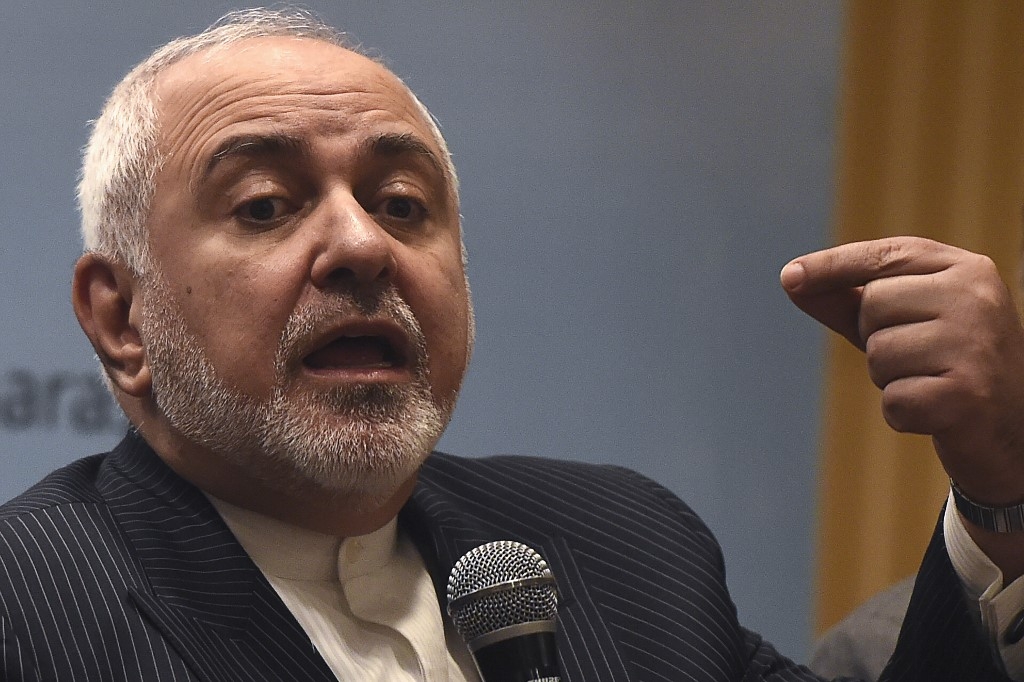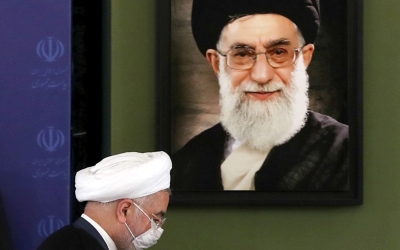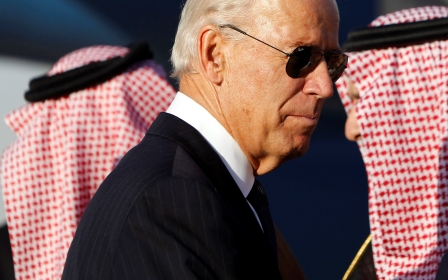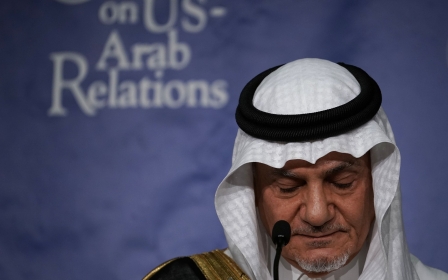Iran will return to nuclear deal if US sanctions are lifted, Zarif says

Iran will fully return to its nuclear commitments if US President-elect Joe Biden lifts sanctions imposed over the past two years, Foreign Minister Javad Zarif says.
In an interview published in the state-run Iran Daily on Wednesday, Zarif said "if the US meets its commitments under [UN Security Council] Resolution 2231, we will fulfill ours under the JCPOA".
"If the US seeks to join the [Joint Comprehensive Plan of Action] again, we are ready to negotiate the terms and conditions of Washington's membership in the deal," he added.
Biden has repeatedly said he would rejoin the landmark 2015 accord, which was negotiated between Iran and six world powers, if Iran returns to compliance. US President Donald Trump's administration unilaterally walked out of the deal in 2018.
In an op-ed published by CNN in September, Biden said he would offer Iran a "credible path back to diplomacy".
New MEE newsletter: Jerusalem Dispatch
Sign up to get the latest insights and analysis on Israel-Palestine, alongside Turkey Unpacked and other MEE newsletters
Zarif said on Wednesday that "America is obligated to implement Resolution 2231 as a member of the United Nations and its Security Council", pointing to the UNSC resolution that enshrined the 2015 nuclear deal.
"If it does carry out this resolution and sanctions are lifted and there are no obstacles to Iran's economic activities, then Iran will carry out" its obligations under the deal, he said.
According to the nuclear accord, Iran had agreed to limits on its nuclear programme in exchange for the lifting of international sanctions.
After the US left the deal two years ago and began reimposing crippling economic sanctions on the country, Iran began to gradually increase its nuclear stockpile beyond the limits of the agreement.
It argued it was reacting to the sanctions and the inability of the other parties - Britain, China, France, Germany and Russia - to provide Tehran with the deal's promised economic benefits.
Zarif described the president-elect as a "foreign affairs veteran" whom he has known for 30 years, and said, once in the White House, Biden could "lift all of these [sanctions] with three executive orders".
If Biden's administration does so, Iran's return to nuclear commitments will be "quick", Zarif added.
'Legitimate concerns'
Still, even after Biden becomes president, diplomats and analysts have noted that the process to return to the nuclear deal may take time.
To compound matters, several key individuals within Biden's transition team are against the idea of lifting sanctions.
Michele Flournoy, who is seen as the odds-on favourite to be Biden's pick for secretary of defence, has said she remains in favour of providing humanitarian channels to Iran, rather than lifting sanctions.
"I don't think we should be lifting sanctions on the regime, given their continued bad behaviour," she said in a March conversation with a conservative think tank, the Hudson Institute.
The Trump administration has also attempted to make lifting sanctions more difficult, pledging earlier this month to impose new sanctions on Iran every week until Biden's inauguration in January.
On Tuesday, senior Saudi royal Turki al-Faisal warned the president-elect against returning to the deal and said the kingdom and other Gulf countries should be involved in future talks.
"Do not ignore the legitimate concerns of your friends and allies in the region," the prince said. "They must be part of negotiating a comprehensive plan to be assured that their strategic interests are taken into consideration."
Middle East Eye delivers independent and unrivalled coverage and analysis of the Middle East, North Africa and beyond. To learn more about republishing this content and the associated fees, please fill out this form. More about MEE can be found here.





